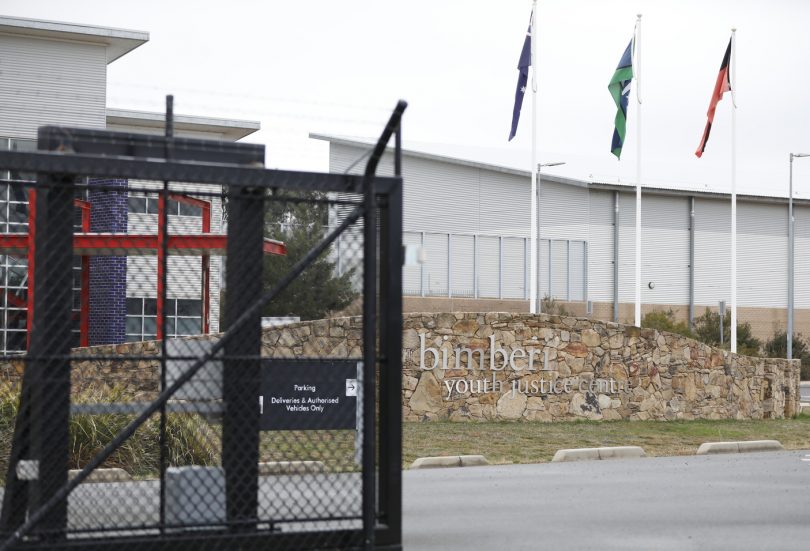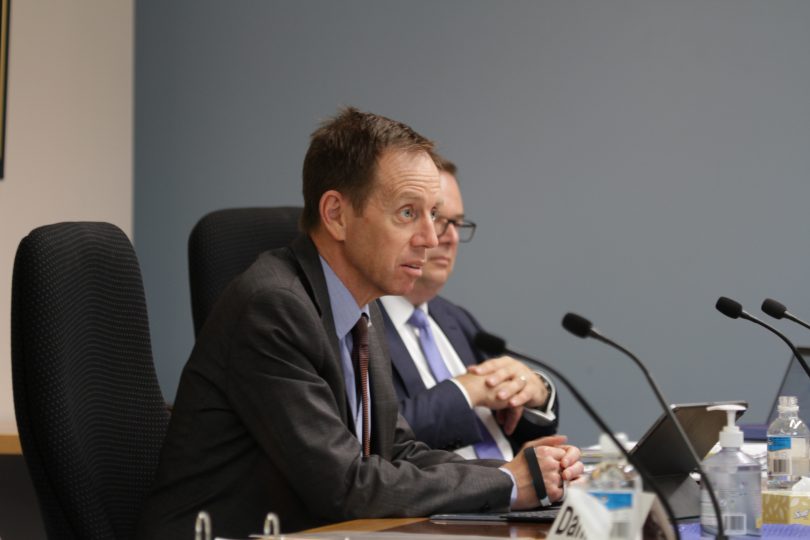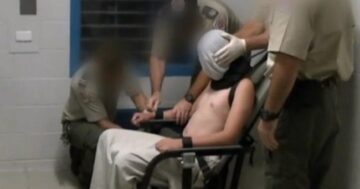
The Australian states are at odds with the ACT in regards to raising the age of criminal responsibility. Photo: Region Media.
It’s likely the ACT will become the only jurisdiction in Australia to introduce legislation that seeks to raise the age of criminal responsibility to 14, rather than 12.
At the Meeting of Attorneys-General (MAG) on Friday, 12 November, all states agreed to support the development of a proposal to raise the age of criminal responsibility from 10 to 12.
The territories were not included in this agreement.
ACT Attorney-General Shane Rattenbury says he made his views clear to the MAG that the age should be raised to 14.
However, he said it was positive to see the other states working together as there previously had not been a “national sense of moving forward”.
But Mr Rattenbury noted “we in the ACT are not bound to 12 by the decision of the state Attorney-Generals – we will take our own path”.
Legislation to raise the age of criminal responsibility to 14 is likely to be put before the ACT’s cabinet in the next few months before it is introduced to the Assembly next year.

ACT Attorney-General Shane Rattenbury says the Territory is not bound to the decisions of other states in regards to raising the age of criminal responsibility. Photo: Dominic Giannini.
Mr Rattenbury said neurological evidence now proves that young people’s brains are still developing and they should not be held criminally responsible until the age of 14.
The ACT Attorney-General also addressed concerns about the need to address the underlying causes of crime for young people.
“This will not be a ‘get out of jail free’ card,” said Mr Rattenbury.
“It will still hold young people accountable, but will do so in a therapeutic way that addresses their underlying traumas.
“This will help them put their lives back on track rather than simply having them in custody and getting them involved in that life-long cycle of crime.”
The international benchmark for the age of criminal responsibility, as set by the United Nations, is 14.
According to the ACT Government, between the financial years of 2015-2016 and 2019-2020, 48 children and young people aged 10 to 13 were supervised by Child and Youth Protective Services on youth justice orders.
In the 2019-2020 financial year, that number was just 12, or eight per cent of the total number of young people on youth justice orders.
During the entire five-year period, the proportion of children aged between 10 and 13 never comprised more than 10 per cent of the total number of young people on youth justice orders.
Region Media understands the ACT Community Services Directorate is unable to disclose the most recent year’s number as they are so low that doing so could lead to the identification of the children concerned.
There is currently no-one under the age of 14 detained at Bimberi Youth Justice Centre.
ACT Council of Social Service (ACTCOSS) chief executive Dr Emma Campbell said she is “bitterly disappointed” with what she saw as an “empty commitment” from the MAG.
“Legal and medical experts – including the Law Council [of Australia] and the Australian Medical Association – have said it is necessary to raise the age of criminal responsibility to at least 14 years of age,” she said.
“Kids belong in school and with their families and communities, not in prison cells. There is not a single shred of credible research that says putting children in jail helps them develop as useful members of society, or that it reduces crime.”
Dr Campbell commended the ACT Government for its commitment to raise the minimum age of criminal responsibility to 14.
The Law Council of Australia is also concerned by the Attorneys-General agreement. It released a statement in which it noted an opportunity to bring Australia in line with international human rights standards has been missed.
However, not everyone agrees with this point of view.
Only recently, ACT Policing said while it supports raising the age, it believes 12 is a more appropriate age than 14.
ACT Policing concerns were outlined in its submission to the ACT Government on the proposal to raise the age of criminal responsibility.
Its submission said of real concern is a cohort of 13-to-14-year-olds who are engaged in “serious and violent offending”, including aggravated burglary, assault, property damage, theft, trespass and weapon offences.
The submission also noted ACT Policing’s preference for the minimum age of criminal responsibility to be nationally consistent.
It is believed that one of the problems that could arise if any jurisdiction moves ahead without the rest of the country is that the federal age of criminal responsibility will remain at 10.
Therefore, 10-to-13-year-olds could be charged with a federal crime even if the minimum age in their own jurisdiction has been raised to 14.





















